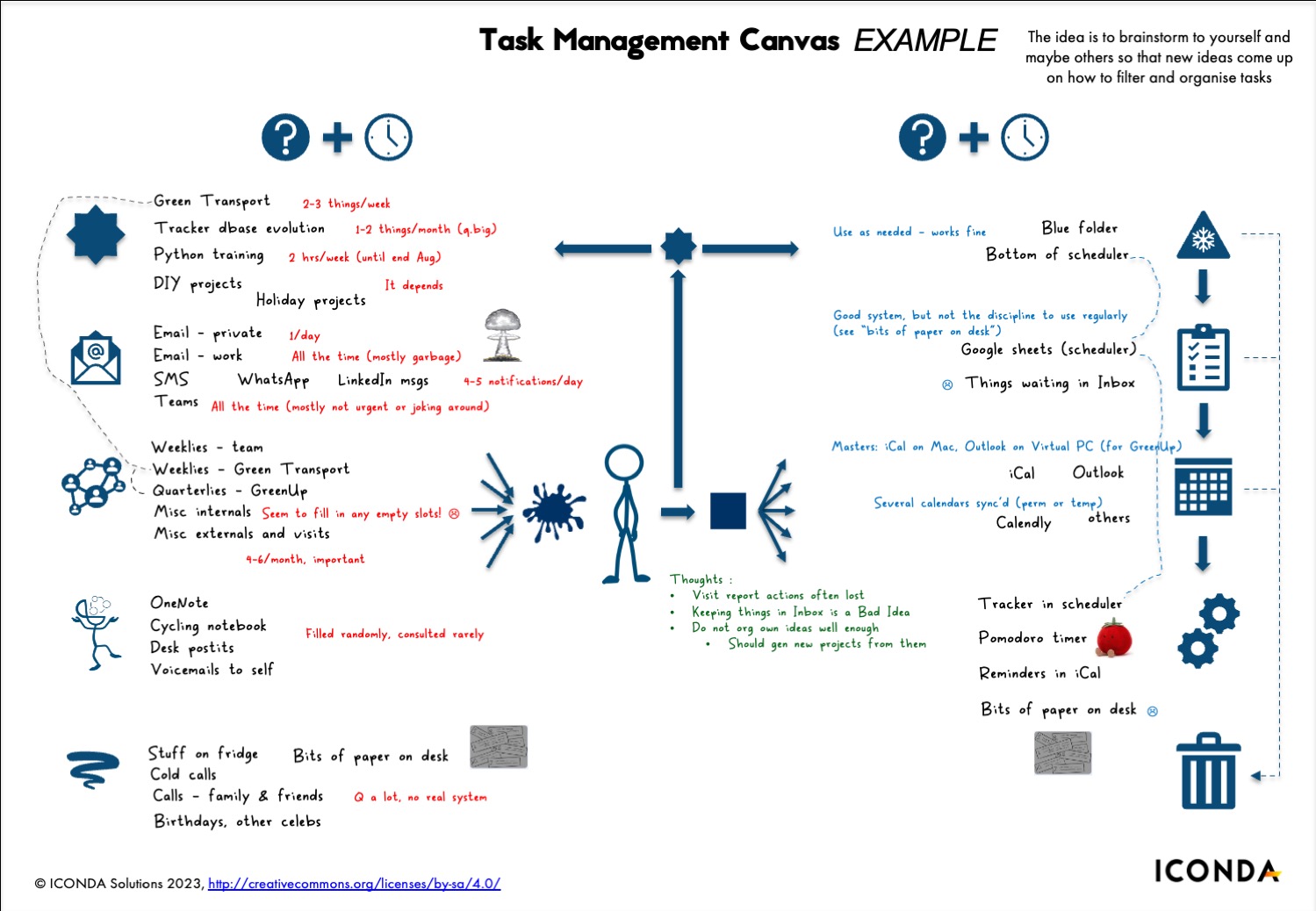According to reliable sources, there are currently 8,045,311,447 people in the world.
35% of them are either under 15 or over 65, so they have nothing to do all day. However, this leaves 5,229,452,460 busy individuals managing a wide variety of tasks.
Based on my knowledge of many of them (though not the majority), this means that there are over 5 billion task management systems out there!
Because every individual seems to manage their tasks differently.
Furthermore, these task management systems are no more perfect than their owners, although they tend to improve over time (the systems, I mean).
With this in mind, I’d like to share a Task Management Canvas that could help you to improve your particular system.
To get the Task Management Canvas and guidance for its use, please click here.
In a nutshell, the canvas has you identify your sources of Things to Do (to the left) and your tools and methods for dealing with Manageable Tasks (on the right). In the middle, a small miracle happens: Things to Do are converted into Manageable Tasks by a conscientious, energetic worker – that’s you.
The process of brainstorming sources of Things to Do and ways of dealing with Manageable Tasks helps us to see flaws in our current system. Sometimes, systems that made sense in the past have got past their sell-by dates, and we need to update them. Occasionally, we see the need for more discipline with regards to certain tasks, and the potential benefits of making this effort can motivate us to find it. Frequently, we notice one or two things that should simply be eliminated.
Just like your personal task management system, how you fill in the canvas is up to you. However, if you take your brainstorming seriously – perhaps going back to it now and again, over a few days – it can work wonders!
Thanks to Suraj Ethirajan and Zaha Hyatt for their collaboration on a recent Task Management podcast. Recognition for David Allen’s huge contribution to the task management literature – he inspired several of the points which are captured in the Task Management Canvas.
The Task Management Canvas is licensed under the Creative Commons Attribution-ShareAlike 4.0 International License. To view a copy of this license, visit http://creativecommons.org/licenses/by-sa/4.0/

